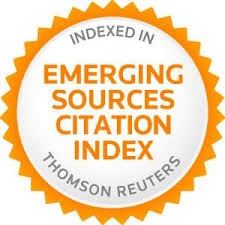Un matrimonio conveniente: diseño de investigación cualitativa y estándares para la evaluación de programas
Resumen
Este artículo proporciona una valoración, desde la perspectiva de la investigación cualitativa, sobre los Standards de 1993 para la evaluación de programas.
En este sentido tres son los aspectos de los Standards que más aportan a los investigadores cualitativos: a) la preocupación por los aspectos humanos de la evaluación; b) los temas de la validez y el significado; y c)una definición más amplia de las técnicas legitimadas de recogida y análisis de datos.
Han sido necesarias varias décadas para que la comunidad evaluativa reconozca la utilidad del enlace entre los diseños cualitativos y cuantitativos. Los Program Evaluation Standards actualizan los procedimientos de evaluación, a la vez que legitima una integración sensata de la amplia variedad de procedimientos disponibles para los evaluadores de programas.Palabras clave
Referencias
Anderson, G.L. (1989). Critical ethnography in education: Its origins, current status and new directions. Review of Educational Research, 59(3), 249-270. http://dx.doi.org/10.3102/00346543059003249
Deyhle, D., Hess, G.A., y LeCompte, M.D. (1992). Approaching ethical issues for qualitative researchers in education. En M.D. LeCompte, W. Millroy y J. Preissle. (Eds.) The handbook of qualitative research in edu-cation. San Diego, CA: Academic Press, pp. 815-861.
Dewey, J. (1934). Art as experience. New York: Minton, Balch. Dewey, J. (1938). Logic: The theory of inquiry. New York: Holt. Erickson, F. (1986). Qualitative methods in research on teaching. En M.C. Wittrock, (Ed.), The handbook of research in teaching (3¦ edición). New York: MacMillan, pp. 119-161.
Gitlin, A. y Smyth J. (1989). Teacher evaluation: Educative alternatives. Philadelphia, PA: The Falmer Press.
Goetz, J. P. y LeCompte, M.D. (1991). Qualitative research in social studies education. En J.P. Shaver (Ed.), Handbook of research on social studies teaching and learning, a project of the National Council for the Social Studies. New York: MacMillan Publishing Co., pp. 56-67.
Goetz J.P. y LeCompte, M.D. (1984). Ethnography and qualitative design in educational research. New York: Academic Press. Guttentag, M. (1971). Evaluation and society. Personality and Social Psychology Bulletin, 3, 31-40.
Helfgot, J. (1974). Professional reform organizations and the symbolic representation of the poor. American Sociological Review, 38, 475-491. http://dx.doi.org/10.2307/2094416
House, E. (1979). The objectivity fairness and justice of federal evaluation policy as reflect-ed in the Follow-Through evaluation. Educational Evaluation and Policy Analysis, 1(1), 28-42. Jaeger, R.M. (Ed.) (1988). Complementary methods for research in education. Washington, D.C.: American Educational Re-search Association. http://dx.doi.org/10.3102/01623737001001028
Joint Committee on Standards for Educational Evaluation (1993). The program evaluation standards: How to assess evaluations of educational programs. United States.
LeCompte, M.D. (1972). The uneasy alliance of community action and research. School Review, 79, 125-132. http://dx.doi.org/10.1086/442961
LeCompte, M.D. (1990). Review of Designing qualitative research, por C. Marshall y G. Rossman, Qualitative Studies in Education, 3 (3), 295-298.
LeCompte, M.D. (en prensa). Some notes on power, agenda and voice: A researcher's personal evolution toward critical collaborative research. En P. MeLaren y J.M. Giarelli, (Eds.). Critical theory and educational re-search. Albany, NY: State University of New York Press.
LeCompte, M.D. y Goetz, J. P. (1982). Ethnographic data collection and analysis in evaluatlon research. Educational Evaluation and Policy Analysis, Fall, 387-400. http://dx.doi.org/10.3102/01623737004003387
LeCompte, M.D. y Preissle, J. (1993). Ethnography and qualitative design in educational research. San Diego: Academic Press. Lincoln, Y.S. y Guba, E. G. (1985). Naturalistic inquiry. Beverly Hills, CA: Sage.
Reichardt, C.S. y Cook,T.D.(1979). (Eds.). Qualitative and quantitative methods in evaluation research. Beverly Hills, CA: Sage.
Rivlin, A.M. (1971). Systematic thinking for social action. Washington, D.C.: The Brookings Institute.
Romagnano, L. (1991). Managing the dilemmas of change: A case study of two ninth grade general mathematics teachers. Tesis doctoral inédita, School of Education, University of Colorado-Boulder.
Sherman, R.R. y Webb, R.B. (1988). Qualitative research in education: A focus. En Sherman, R.R. y Webb, R.B. (Eds.), Qualitative Research in Education: Focus and Methods. New York: The Falmer Press, pp. 2-22.
Stake, R.E. (1978). The case study method in social inquiry. Educational Researcher 7, 5-8. http://dx.doi.org/10.3102/0013189X007002005
Wax, M.L. (1979). Desegregated schools: An intimate portrait based on five ethnographic studies. Informe inédito para el National Institute of Education. Social Science Institute, Washington University, St. Louis.
Wilson, S. (1977).The use of ethnographic techniques in educational research. Review of Educational Research, 47, 245-265. http://dx.doi.org/10.3102/00346543047002245
Wolcott, H.M. (1980). How to look like an anthropologist without really being one. Practicing Anthropology, 3(1), 6-17, 56-59. Wolcott, H. M. (1990). Writing up qualitative re-search. Newbury Park, CA: Sage.
Enlaces refback
- No hay ningún enlace refback.


